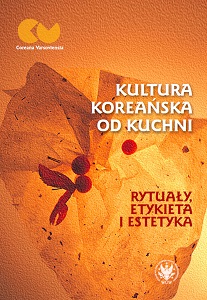Wino w poezji shijo – przykład postawy epikurejskiej i eskapizmu w tradycyjnej literaturze koreańskiej
Shijo and Wine – Epicureanism and Escapism in Korean Traditional Literature
Author(s): Anna Piwowarska
Subject(s): Cultural history, Theoretical Linguistics, Applied Linguistics, Philology
Published by: Wydawnictwa Uniwersytetu Warszawskiego
Keywords: shijo; Korean literature; Korean classical poetry
Summary/Abstract: The following article focuses on of the types of traditional Korean poetry called shijo. Although relatively short in form, these poems remain one of the most representative types of Korean classical poetry. Members of the upper class, such as Confucian scholars and literati, who for the longest time remained the main authors of shijo, used their works to popularize Confucianism and its ethics, glorify consecutive kings reigning the Korean Peninsula, as well as express emotional dilemmas regarding different historical events and passage of time. As years went by, however, more people from different backgrounds created shijo, which resulted in an increase of the themes and emotions appearing in this kind of poetry. One such motif that kept reappearing throughout the centuries is the theme of drinking alcohol and enjoying one’s time under its influence. Recalling these types of scenes, Korean literati presented many different messages for the reader to interpret. Firstly, this kind of poetry took on the role of a poetic toast to centuries past and happiness of drinking wine. Other than that, however, it also carried the meaning of longing for an epicurean life spend on simple prosaic pleasures that one could experience during one lifespan. Finally, it was a way of escaping the ruthlessness of life, especially in case of authors whose life was inseparably bound to the court and its many controversies.
Book: Kultura koreańska od kuchni. Rytuały, etykieta i estetyka
- Page Range: 9-36
- Page Count: 28
- Publication Year: 2021
- Language: Polish
- Content File-PDF

